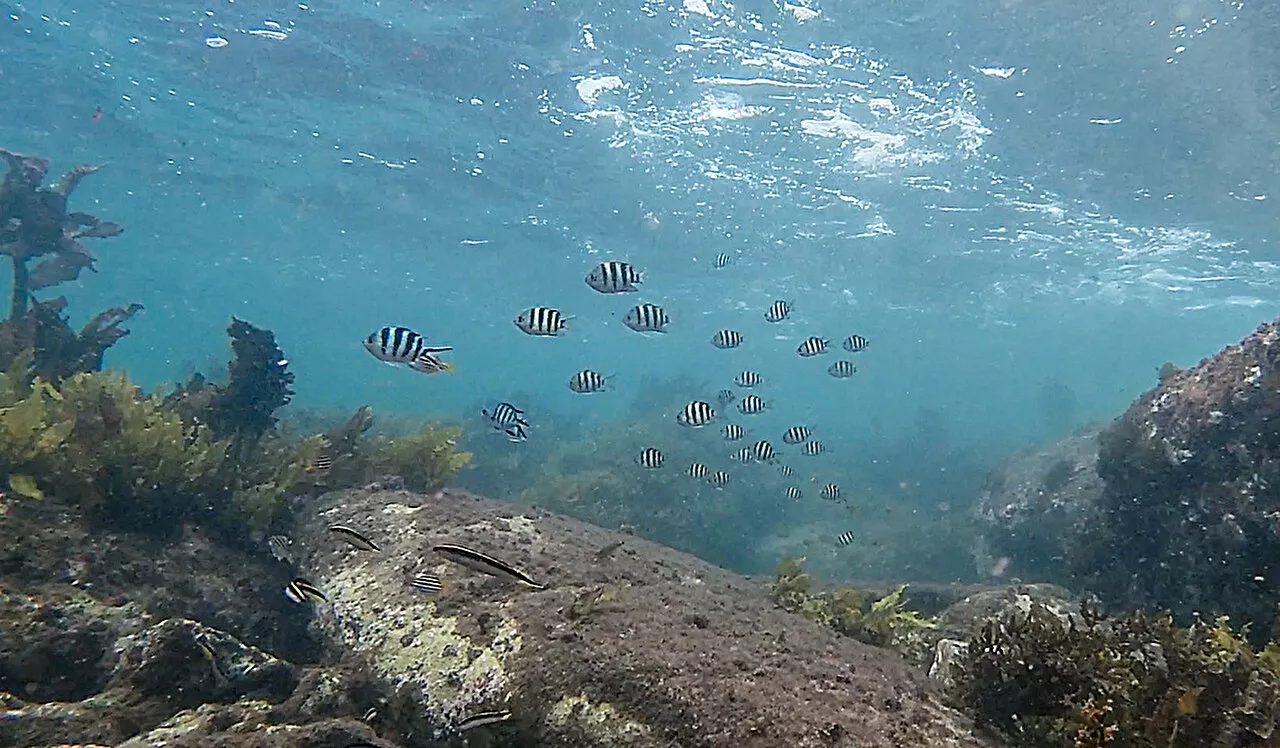A new study demonstrates that kangaroos, wallabies and other Australian marsupials fear humans far more than any other predator.
Australia lacks fearsome large carnivores like lions and wolves, and the relative lack of fear that marsupials like kangaroos and wallabies show to dogs has been attributed to a lack of evolutionary experience with large mammalian predators. This, however, overlooks the 50,000-year-long presence in Australia of the world's most fearsome predator -- the human 'super predator.'
For this new study, Zanette and her colleagues worked in the eucalypt forest in Tasmania and experimentally demonstrated that kangaroos, wallabies and other marsupials were 2.4 times more likely to flee in response to hearing human voices compared to hearing dogs, Tasmanian devils or wolves.
To conduct their experiment, the team deployed hidden automated camera-speaker systems that, when triggered by an animal passing within a short distance , filmed the response to humans speaking calmly, dogs barking, Tasmanian devils snarling, wolves howling or non-threatening controls, such as sheep bleating.
Australian rock-wallabies are 'little Napoleons' when it comes to compensating for small size, packing much more punch into their bite than larger relatives. Researchers made the discovery ...
Dogs Wild Animals Wildfires Geography Exotic Species Land Management Urbanization Bioethics
United States Latest News, United States Headlines
Similar News:You can also read news stories similar to this one that we have collected from other news sources.
 Australian Dollar depreciates ahead of the Australian Budget ReleaseThe Australian Dollar (AUD) retraces its recent gains on Tuesday ahead of the Yearly Budget Release by the Australian Government due to be published later in the day.
Australian Dollar depreciates ahead of the Australian Budget ReleaseThe Australian Dollar (AUD) retraces its recent gains on Tuesday ahead of the Yearly Budget Release by the Australian Government due to be published later in the day.
Read more »
 Australian study proves 'humans are planet's most frightening predator'Australia lacks fearsome large carnivores like lions and wolves, and the relative lack of fear that marsupials like kangaroos and wallabies show to dogs (and other introduced carnivores) has been attributed to a lack of evolutionary experience with large mammalian predators.
Australian study proves 'humans are planet's most frightening predator'Australia lacks fearsome large carnivores like lions and wolves, and the relative lack of fear that marsupials like kangaroos and wallabies show to dogs (and other introduced carnivores) has been attributed to a lack of evolutionary experience with large mammalian predators.
Read more »
 Mislabeled shark meat rampant in Australian markets, study findsResearchers at Macquarie University have found a significant portion of shark meat sold in Australian fish markets and takeaway shops is mislabeled, including several samples from threatened species.
Mislabeled shark meat rampant in Australian markets, study findsResearchers at Macquarie University have found a significant portion of shark meat sold in Australian fish markets and takeaway shops is mislabeled, including several samples from threatened species.
Read more »
 One in seven Australian adults admits to workplace technology-facilitated sexual harassment, new study findsThe first national study to investigate workplace technology-facilitated sexual harassment (WTFSH) has revealed 1 in 7 Australian adults surveyed admit to engaging in this form of sexual harassment at work.
One in seven Australian adults admits to workplace technology-facilitated sexual harassment, new study findsThe first national study to investigate workplace technology-facilitated sexual harassment (WTFSH) has revealed 1 in 7 Australian adults surveyed admit to engaging in this form of sexual harassment at work.
Read more »
 Study finds climate change is helping tropical fish invade Australian ocean waterA University of Adelaide study of shallow-water fish communities on rocky reefs in south-eastern Australia has found climate change is helping tropical fish species invade temperate Australian waters. The work is published in the Journal of Animal Ecology.
Study finds climate change is helping tropical fish invade Australian ocean waterA University of Adelaide study of shallow-water fish communities on rocky reefs in south-eastern Australia has found climate change is helping tropical fish species invade temperate Australian waters. The work is published in the Journal of Animal Ecology.
Read more »
 Everything You Missed From the Australian Fashion Week Resort 2025 CollectionsFrom sustainable swimwear, to modest dresses, and dramatic runway moments; here’s the scoop on Australian Fashion Week.
Everything You Missed From the Australian Fashion Week Resort 2025 CollectionsFrom sustainable swimwear, to modest dresses, and dramatic runway moments; here’s the scoop on Australian Fashion Week.
Read more »
